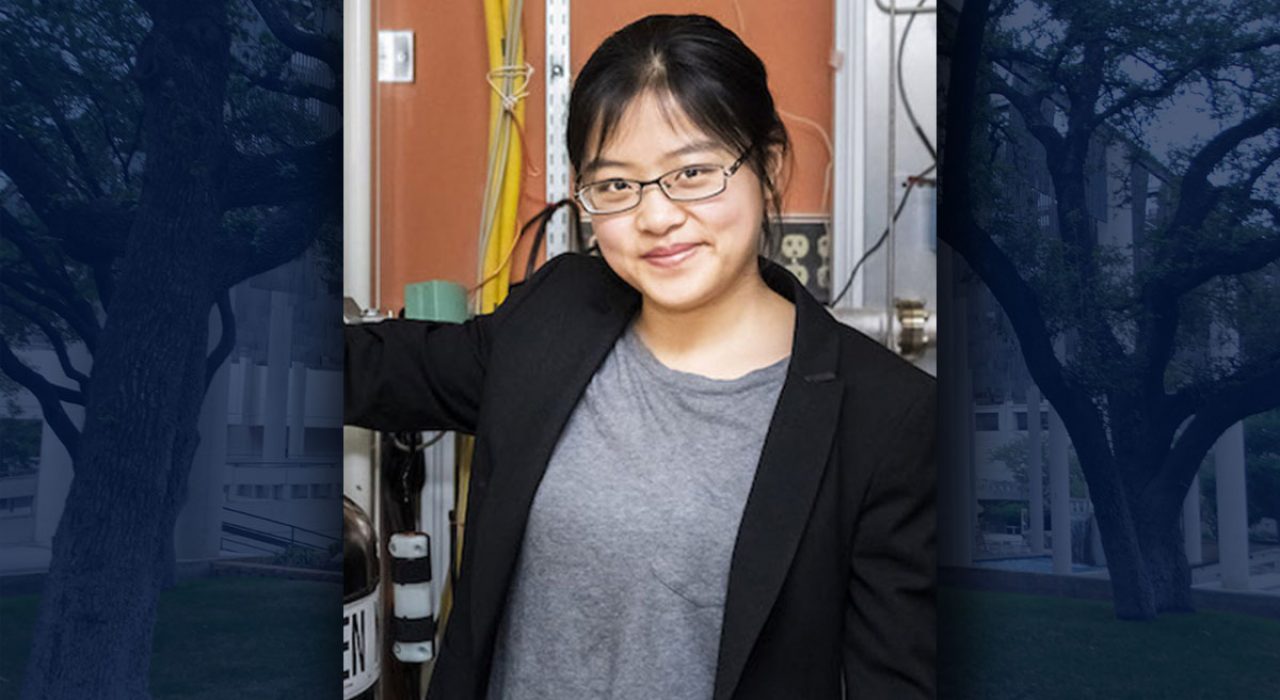Xinting Yu, assistant professor in the Department of Physics and Astronomy at The University of Texas at San Antonio, is one of two recipients of the 2025 Harold C. Urey Prize.
The national award from the American Astronomical Society’s Division for Planetary Sciences recognizes early-career scientists shaping the future of space research.
Yu was honored for her research in planetary and exoplanetary science — the study of planets in our solar system and beyond. Her work focuses on how planetary surfaces and atmospheres interact and evolve.
By combining lab experiments with computer modeling, Yu is helping scientists better understand phenomena ranging from windblown dunes on Saturn’s moon Titan to the thick clouds enveloping distant exoplanets.
Yu’s lab studies unusual planetary materials, like icy particles and haze, to understand their behavior in extreme environments. Her team has published more than 15 papers in top journals and been featured in national science media.
Mini-Neptunes
One of her most memorable research discoveries happened in 2021, Yu said, when she predicted atmospheric compositions of exoplanets measurable by the James Webb Space Telescope (JWST) could help scientists distinguish “mini-Neptunes” from “super-Earths.” The intermediate-sized planets, the most abundantly discovered so far, don’t exist in our solar system and little is known about them.
“It’s really important to know whether some of these planets could have surface conditions like Earth so we can expand our search for habitable worlds beyond Earth-sized planets,” Yu said.
The space telescope can’t directly observe the planets’ surfaces, so Yu’s method uses atmospheric data to probe them indirectly. Now that the telescope has begun collecting data, her approach is being applied in ongoing research to interpret observations of several exoplanets outside of our solar system that are the strongest candidates for harboring life.
As part of Yu’s research group, UTSA graduate student Cindy Luu recently published a 2024 study describing K2-18 b, a super-Earth exoplanet located outside of our solar system that is believed to be a sort of water world with a supercritical water ocean.
This work applied Yu’s atmospheric analysis methods to offer insights that could reshape how scientists view sub-Neptune worlds, further advancing the lab’s mission to understand distant exoplanets.
“It’s really important to know whether some of these planets could have surface conditions like Earth so we can expand our search for habitable worlds beyond Earth-sized planets.” — Xinting Yu
Magic islands
In 2024, Yu made headlines with her research on Titan’s mysterious “magic islands” — bright patches that appear and disappear in its methane seas. Her research suggests they are clumps of floating organic material, like icebergs, and proposes a thin frozen layer may coat Titan’s lakes, explaining their smooth appearance.
Currently, Yu is leading a project studying “missing” methane gases in warm-to-hot exoplanet atmospheres. Her team developed a fast, geochemistry-inspired framework suggesting these planets may have hotter interiors than models predict, showing how atmospheric chemistry probes planetary interiors.
The professor is also developing ways to determine if distant planets have solid or liquid surfaces using atmospheric data, inspired by Titan and Jupiter’s contrasting atmospheres. This could help identify potentially habitable worlds using JWST data.
How planets form
Yu’s research team is expanding into planet formation research and aims to use her lab’s Planetary Material Characterization Facility (PMCHEF) to study early solar system materials. Besides analyzing carbon-rich meteorite samples they already possess, the team hopes to study samples from asteroid Bennu and a future NASA comet sample-return mission.
“This would help us address multiple open questions in the field, such as how elements go into forming planets and how planets form from very tiny dust particles,” Yu said.
Before joining the university in 2023, Yu was a postdoctoral fellow at the University of California, Santa Cruz through the 51 Pegasi b Fellowship.
In her first year at UT San Antonio, she launched the Texas Area Planetary Science (TAPS) Meeting to foster local collaboration among planetary and exoplanet scientists. In 2023, she also received NASA’s Planetary Science Early Career Award, which helped establish her lab, PMCHEF.
With her research and leadership, Yu is helping UTSA grow its planetary science discovery effort and expand understanding of worlds near and far.



